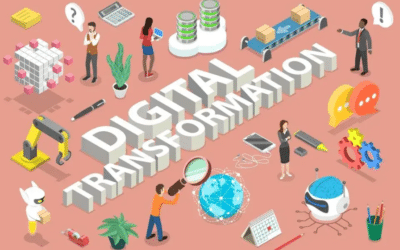June 8th Round Table Event – London EC1V & Remote
Eliden extends its appreciation to all participants for their active engagement, commitment, and willingness to share their knowledge and experiences. It is through your collaborative efforts that we were able to openly discuss your common challenges. Representatives from all companies highlighted the key role that good resources play in the success of projects while shedding light on the ongoing resource challenges. The discussion uncovered common approaches that could also assist other organizations in addressing similar challenges.
Throughout the session, it became evident that office-based construction will need to embrace the pace of technological change. However, companies continue to encounter significant hurdles in recruiting and retaining skilled professionals to fill these evolving positions.
Summary of the Event:
1. Skilled Labor Shortage and Talent Acquisition
Participants acknowledged the scarcity of skilled workers in office-based construction roles and highlighted the need for proactive talent acquisition strategies. They emphasized the importance of engaging with educational institutions and vocational programs to attract young talent to the construction sector, as well as tapping into other areas of talent. Companies can form partnerships with academic institutions, offer internships, and provide scholarships to nurture and attract the next generation of professionals in these roles. Some actions taken by participants include:
- Increasing engagement with educational institutions and vocational programs.
- Enhancing the attraction of a more diverse range of talent to the construction sector (age, race, socioeconomic).
- Forming partnerships and collaborations to nurture and attract skilled professionals.
2. Leveraging AI Recruitment, Compliance, & Retention
The roundtable highlighted the potential of AI solutions in streamlining the recruitment process for office-based construction roles. Digital platforms, blockchain, and software tools can be utilized to automate candidate sourcing, screening, talent database management, and safety/compliance checks. Furthermore, companies can leverage technology to enhance employee retention by offering flexible work arrangements, remote collaboration tools, and a wider range of career development opportunities where roles cross over. Some actions taken by participants include:
- -Streamlining recruitment processes using AI and digital platforms.
- Improving candidate sourcing, screening, and talent database management.
- Investigating solutions that use blockchain systems for ID, health, and compliance checks.
3. Data-Driven Decision-Making for Resource Management
Participants emphasized the value of data in addressing resource challenges. Companies can collect and analyse data to identify skill gaps, forecast workforce demand, and allocate resources effectively. By leveraging data analytics, organizations can make informed decisions regarding recruitment, training, and resource allocation to ensure the optimal utilization of office-based construction roles. Some actions taken by participants include:
- Improving the identification of skill gaps and workforce demand through data analysis.
- Optimizing resource allocation based on data-driven insights.
- Enhancing efficiency and productivity in managing office-based construction roles.
4. Collaboration & Knowledge Sharing
Collaboration emerged as a key strategy to address resource challenges in office-based construction roles. Participants stressed the importance of industry-wide collaboration between construction companies, educational institutions, and industry associations. By sharing best practices, establishing talent pools, and creating centralized platforms for knowledge exchange, companies can collectively address the skilled labor shortage and foster a skilled workforce for the entire industry. Some actions taken by participants include:
- Establishing partnerships between construction companies, educational institutions, and industry associations.
- Sharing best practices, talent pools, and training resources through centralized platforms.
- Strengthening the construction industry through collective efforts and knowledge exchange with sponsored round table events.
5. Upskilling & Reskilling Initiatives
To bridge the gap between traditional construction practices and emerging technologies, participants emphasized the need for upskilling and reskilling programs. Companies can invest in initiatives to enhance the skills of existing employees in office-based construction roles. These programs can focus on areas such as digital twins, BIM, data analytics, enhanced project management, and digital collaboration to ensure that professionals are better equipped with the necessary skills to adapt to industry advancements over the next decade. Some actions taken by participants include:
- Developing targeted upskilling and reskilling programs for office-based construction roles.
- Acquiring new skills and knowledge related to emerging technologies and practices.
- Bridging the gap between traditional construction practices and industry advancements.
6. Building a Positive Work Environment
Creating a positive work environment is crucial for attracting and retaining skilled professionals in office-based construction roles. Companies can prioritize employee well-being, offer imaginative compensation packages, and provide opportunities for growth and advancement. By fostering a culture of continuous learning and innovation, companies can attract top talent and create an environment where professionals can thrive. Some actions taken by participants include:
- Creating a positive work culture that attracts and retains skilled professionals.
- Improving employee well-being and job satisfaction as a selling point.
- Developing a wider set of career growth opportunities and a culture of continuous learning.
In conclusion, the ongoing evolution of construction roles as technology advances offers a range of opportunities for organizations to tackle resource challenges through AI and data-driven decision-making, reskilling initiatives, and the creation of positive work environments. By embracing these strategies, companies can navigate the dynamic construction landscape and secure success in an industry driven by technology.










